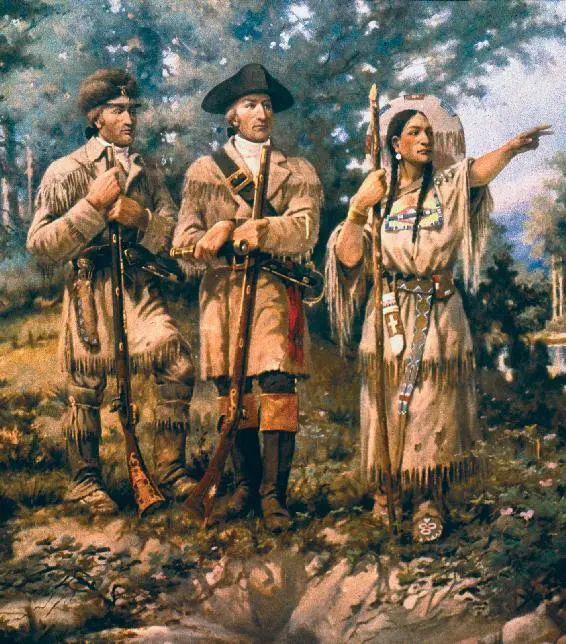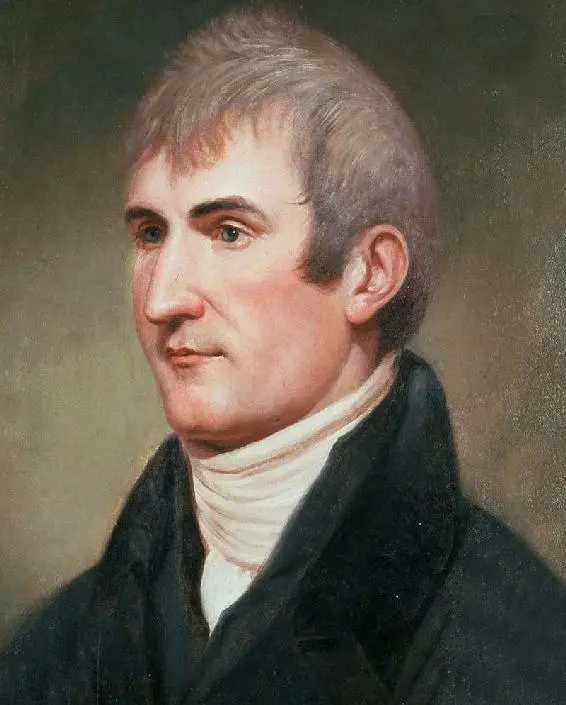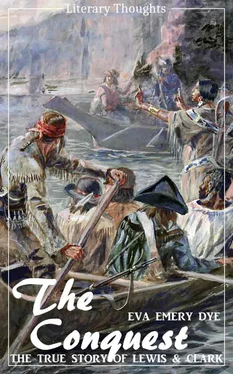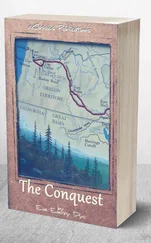The Conquest: The True Story of Lewis and Clark by Eva Emery Dye
Literary Thoughts Edition presents
The Conquest: The True Story of Lewis and Clark,
by Eva Emery Dye
Transscribed and Published by Jacson Keating (editor)
For more titles of the Literary Thoughts edition, visit our website: www.literarythoughts.com
All rights reserved. No part of this edition may be reproduced, stored in retrieval system, copied in any form or by any means, electronic, mechanical, photocopying, recording or otherwise transmitted without written permission from the publisher. You must not circulate this book in any format. For permission to reproduce any one part of this edition, contact us on our website: www.literarythoughts.com.
This edition is licensed for your personal enjoyment only. It may not be resold or given away to other people. If you would like to share this book with another person, please purchase an additional copy for each recipient. If you’re reading this book and did not purchase it, or it was not purchased for your use only, then please return to Amazon and purchase your own copy of the ISBN edition available below. Thank you for respecting the efforts of this edition.

The author hereby acknowledges obligation to the Lewis and Clark families, especially to William Hancock Clark of Washington, D.C., and John O'Fallon Clark of St. Louis, grandsons of Governor Clark, and to C. Harper Anderson of Ivy Depot, Virginia, the nephew and heir of Meriwether Lewis, for letters, documents, and family traditions; to Mrs. Meriwether Lewis Clark of Louisville and Mrs. Jefferson K. Clark of New York, widows of Governor Clark's sons, and to more than twenty nieces and nephews; to Reuben Gold Thwaites of the University of Wisconsin, for access to the valuable Draper Collection of Clark, Boone, and Tecumseh manuscripts, and for use of the original journals of Lewis and Clark which Mr. Thwaites is now editing; to George W. Martin of the Kansas Historical Society at Topeka, for access to the Clark letter-books covering William Clark's correspondence for a period of thirty years; to Colonel Reuben T. Durrett of Louisville, for access to his valuable private library; to Mr. Horace Kephart of the Mercantile Library, and Mr. Pierre Chouteau, St. Louis; to the Historical Societies of Missouri, at St. Louis and Columbia; to Mrs. Laura Howie, for Montana manuscripts at Helena; to Miss Kate C. McBeth, the greatest living authority on Nez Percé tradition; to the descendants of Dr. Saugrain, and to the families and friends of Sergeants Pryor, Gass, Floyd, Ordway, and privates Bratton, Shannon, Drouillard, of the Lewis and Clark Expedition; also to the Librarian of Congress for copies of Government Documents.
E. E. D.
Oregon City, Oregon,
September 1, 1902.
Book I – WHEN RED MEN RULED

Meriweather Lewis
Chapter I – A CHILD IS BORN
The old brick palace at Williamsburg was in a tumult. The Governor tore off his wig and stamped it under foot in rage.
"I'll teach them, the ingrates, the rebels!" Snatching at a worn bell-cord, but carefully replacing his wig, he stood with clinched fists and compressed lips, waiting.
"They are going to meet in Williamsburg, eh? I'll circumvent them. These Virginia delegates! These rebellious colonists! I'll nip their little game! The land is ripe for insurrection. Negroes, Indians, rebels! There are enough rumblings now. Let me but play them off against each other, and then these colonists will know their friends. Let but the Indians rise—like naked chicks they'll fly to mother wings for shelter. I'll show them! I'll thwart their hostile plans!"
Again Lord Dunmore violently rang the bell. A servant of the palace entered.
"Here, sirrah! take this compass and dispatch a messenger to Daniel Boone. Bade him be gone at once to summon in the surveyors at the Falls of the Ohio. An Indian war is imminent. Tell him to lose no time."
The messenger bowed himself out, and a few minutes later a horse's hoofs rang down the cobblestone path before the Governor's Mansion of His Majesty's colony of Virginia in the year of our Lord 1774.
Lord Dunmore soliloquised. "Lewis is an arrant rebel, but he is powerful as old Warwick. I'll give him a journey to travel." Again he rang the bell and again a servant swept in with low obeisance.
"You, sirrah, dispatch a man as fast as horse or boat can speed to Bottetourt. Tell Andrew Lewis to raise at once a thousand men and march from Lewisburg across Mt. Laurel to the mouth of the Great Kanawha. Here are his sealed orders." The messenger took the packet and went out.
"An Indian war will bring them back. I, myself, will lead the right wing, the pick and flower of the army. I'll make of the best men my own scouts. To myself will I bind this Boone, this Kenton, Morgan, and that young surveyor, George Rogers Clark, before these agitators taint their loyalty. I, myself, will lead my troops to the Shawnee towns. Let Lewis rough it down the Great Kanawha."
It was the sixth of June when the messenger drew rein at Boone's door in Powell's Valley. The great frontiersman sat smoking in his porch, meditating on the death of that beloved son killed on the way to Kentucky. The frightened emigrants, the first that ever tried the perilous route, had fallen back to Powell's Valley.
Boone heard the message and looked at his faithful wife, Rebecca, busy within the door. She nodded assent. The messenger handed him the compass, as large as a saucer. For a moment Boone balanced it on his hand, then slipped it into his bosom. Out of a huge wooden bowl on a cross-legged table near he filled his wallet with parched corn, took his long rifle from its peg over the door, and strode forth.
Other messengers were speeding at the hest of Lord Dunmore, hither and yon and over the Blue Ridge.
Andrew Lewis was an old Indian fighter from Dinwiddie's day,—Dinwiddie, the blustering, scolding, letter-writing Dinwiddie, who undertook to instruct Andrew Lewis and George Washington how to fight Indians! Had not the Shawnees harried his border for years? Had he not led rangers from Fairfax's lodge to the farthest edge of Bottetourt? Side by side with Washington he fought at Long Meadows and spilled blood with the rest on Braddock's field. More than forty years before, his father, John Lewis, had led the first settlers up the Shenandoah. They had sown it to clover, red clover, red, the Indians said, from the blood of red men slain by the whites.
But what were they to do when peaceful settlers, fugitives from the old world, staked their farms on vacant land only to be routed by the scalp halloo? Which was preferable, the tyranny of kings or the Indian firestake? Hunted humanity must choose.
The Shawnees, too, were a hunted people. Driven from south and from north, scouted by the Cherokees, scalped by the Iroquois, night and day they looked for a place of rest and found it not. Beside the shining Shenandoah, daughter of the stars, they pitched their wigwams, only to find a new and stronger foe, the dreaded white man. Do their best, interests would conflict. Civilisation and savagery could not occupy the same territory.
And now a party of emigrants were pressing into the Mingo country on the upper Ohio. Early in April the family of Logan, the noted Mingo chief, was slaughtered by the whites. It was a dastardly deed, but what arm had yet compassed the lawless frontier? All Indians immediately held accountable all whites, and burnings and massacres began in reprisal. Here was an Indian war at the hand of Lord Dunmore.
Читать дальше














